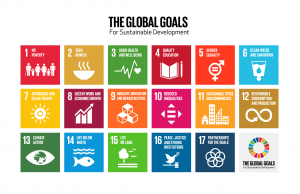Are you fascinated by the idea of social robots in everyday life? Have you always dreamed of having a robot companion to teach you a new language, help you with your questions, do exercises with you, or challenge your viewpoints? Whether it’s in education, healthcare, or hospitality, social robots are changing the way we interact with technology. If you’re passionate about finding creative solutions to longstanding societal challenges and believe that social robots can be part of these solutions, then this minor is perfect for you!
Join a multidisciplinary research team and collaborate with peers from diverse fields such as psychology, social work, education, healthcare, engineering, media, IT, communication, and business. Each team member brings unique expertise, and together, you’ll explore and design creative and innovative applications for social robots. Combining your strengths will give you the opportunity to make an impact in the field of social robotics.
Admission
This minor is open to all students with an interest in technological solutions for societal problems. Students do not need programming knowledge to participate in this minor. However, if you have basic or advanced programming knowledge, you will be able to utilize these skills in your project. You don’t need an internship or workplace to take part in the minor.
This minor is not suited for part-time and flex students.
The Examination Board determines which minors do not have a higher professional education level and/or have an unacceptable overlap with the compulsory curriculum of your own study programme. Check at the page Not allowed minor courses under your institute which minors are not allowed.
Content
The Social Robotics minor focuses on the interaction between robots and humans in education, healthcare, and hospitality. You will learn how people interact with robots, how to design social robots, and how to do good research. Later, you will use this knowledge in a large research project. Presented below are example projects of recent years:
Examples of projects:
- The robot as a teacher’s assistant. During the minor, students studied how robots can support primary school teachers and increase the learning outcomes of children. Stel je voor: een robot die de leerkracht helpt in de klas – YouTube (video in Dutch).
- Healthcare robots. We also developed and applied robots for a children’s hospital (Wilhelmina Kinderziekenhuis) in the Netherlands. These robots stimulated children to exercise, increased children’s involvement in sport and play, and distracted them from being sick. Studenten programmeren robots voor WKZ- Hogeschool Utrecht – YouTube (video in Dutch).
Learning objectives
The student will be able to design, build, use, evaluate and contribute to society with a social robot.
Courses
The programme takes place during one semester and contains the following:
Project Social Robots (in the domain of hospitality, education and/or healthcare): 30 ECTS.
The Project Social Robotics focusses on building and applying a social robot in a certain context, researching its effectiveness, and analyzing the interaction. You will therefore learn the basic principles of Human-Robot Interaction, learn how to design a social robot, set up an experiment, and evaluate this in one of the three domains (hospitality, education, and healthcare).
Assessment
This minor will be evaluated based on multiple assessments. Students’ knowledge will be assessed through a written exam and presentation, and students’ skills through a poster and research paper.
Literature
The literature used during the minor will consist of cutting-edge research papers. You will receive definite information at the start of the minor.
Schedule
The timetable and the course days are not yet known, but the minor is full-time (5 days attendance), and it is not possible to make special arrangements.You are expected to come to the class. There are no online classes.
With the exception of the first teaching period of the academic year (starting September), the lesson and test schedules are always posted on Mijn Rooster four weeks before the start of each teaching period. The schedule for the first teaching period of the academic year can be found on the site three weeks before the start. The most up-to-date schedule is always visible on Mijn Rooster.
At HU, full-time education may be scheduled between 08:30 and 19:00.
Additional costs
There are no additional costs.

This minor course is marked by the Green Office as a sustainable minor. This means that by participating in this minor course, you can contribute to one or more of the Sustainable Development Goals from the UN.